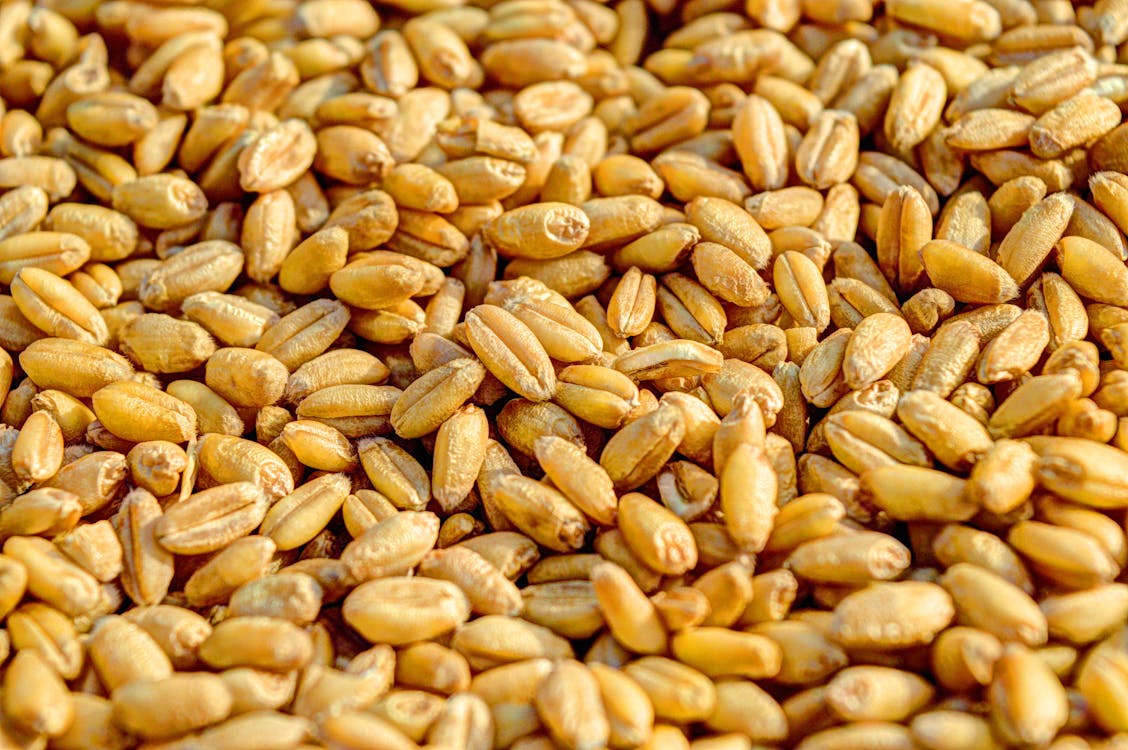In the tapestry of our diets, wheat has long held a prominent place, gracing our tables in various forms – from the comforting warmth of freshly baked bread to the wholesome goodness of pasta. However, the intersection of wheat, genetic modification, and concerns about high carbohydrate content has sparked a conversation about the impact on our health. Join us as we delve into the human-centric narrative of wheat, exploring the role of genetic modification, the controversy surrounding high-carb content, and how this beloved grain fits into our complex relationship with food.
The Wheat We Know and Love:

- Wheat’s Rich Heritage: A Staple in Our Diets
Human-Centric Insight: Wheat, with its roots dating back thousands of years, has been a dietary staple for civilizations across the globe. Whether in the form of whole wheat, refined flour, or various wheat-based products, this grain has been a reliable source of sustenance, providing the foundation for countless meals that bring people together.
- Nutrient-Rich Composition: The Whole Grain Goodness
Human-Centric Insight: Whole wheat, in its unrefined state, is a nutritional powerhouse. Packed with fiber, vitamins, and minerals, it contributes to digestive health, supports energy production, and provides essential nutrients for overall well-being. Its versatility in the kitchen makes it a canvas for a wide array of delicious and nourishing dishes.
Genetic Modification and Wheat:
- The GMO Landscape: Tinkering with Nature
Human-Centric Insight: Genetic modification, or GMO, involves altering an organism’s genetic material in a way that doesn’t occur naturally. In the context of wheat, genetic modification aims to enhance certain traits, such as resistance to pests or improved yields. While the intention is often to address agricultural challenges, concerns about the long-term impact on human health and the environment have sparked debates.
- GMO Wheat and High Carb Content: The Controversy Unveiled
Human-Centric Insight: The controversy surrounding genetically modified wheat often intertwines with discussions about high carbohydrate content. Traditional wheat varieties are carbohydrate-rich, and some argue that genetic modifications may inadvertently exacerbate this aspect. The concern centers on the potential impact on blood sugar levels, weight management, and the development of metabolic conditions like diabetes.
The High-Carb Conundrum:

- Understanding Carbohydrates: The Body’s Primary Fuel
Human-Centric Insight: Carbohydrates are a fundamental macronutrient, serving as the body’s primary source of energy. They come in various forms, including sugars, starches, and fiber. While carbohydrates are essential for fueling our activities, the type and quality of carbohydrates we consume play a crucial role in determining their impact on our health.
- The Glycemic Index: Decoding Carbohydrate Impact
Human-Centric Insight: The glycemic index (GI) measures how quickly a carbohydrate-containing food raises blood sugar levels. Foods with a high GI are rapidly digested and absorbed, leading to a quick spike in blood sugar. Whole grains like unprocessed wheat generally have a lower GI, providing a slower and more sustained release of energy.
The Whole Grain Solution:
- Whole Wheat vs. Refined Wheat: A Nutritional Gulf
Human-Centric Insight: The refining process strips away the outer bran and germ layers of wheat, leaving behind the starchy endosperm. While this yields the smooth texture of white flour, it also removes essential nutrients, including fiber. Whole wheat, on the other hand, retains these nutrient-rich layers, offering a more complete package of health benefits.
- Choosing Wisely: The Human-Centric Approach
Human-Centric Insight: When it comes to wheat and carbohydrates, the key lies in making mindful choices. Opting for whole grain varieties of wheat ensures that you receive the full spectrum of nutrients, including fiber, vitamins, and minerals. Balancing your diet with a variety of whole, minimally processed foods contributes to overall health and well-being.
Navigating GMO Concerns:

- Label Transparency: Making Informed Choices
Human-Centric Insight: In many regions, regulations mandate the labeling of genetically modified foods. Checking product labels allows consumers to make informed choices about whether to include or avoid GMO wheat products. Advocacy for clear and transparent labeling empowers individuals to align their food choices with their values and health preferences.
- Diverse Perspectives: Weighing the Risks and Benefits
Human-Centric Insight: The debate surrounding GMOs and wheat is multifaceted. While some express concerns about potential long-term health effects, others argue that responsible genetic modification can contribute to more resilient and sustainable agricultural practices. Considering diverse perspectives allows us to navigate this complex terrain with an awareness of both risks and potential benefits.


